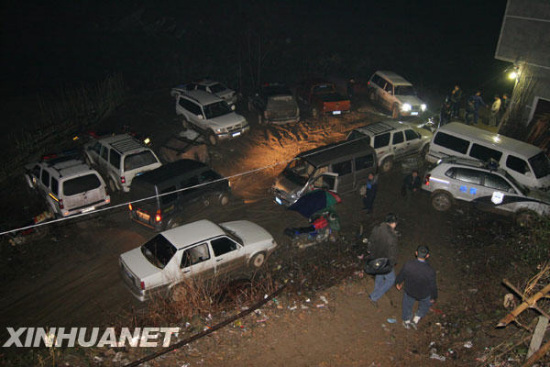Society
- Details
- By David Cao
- Hits: 1095

A Japanese show the photos of Nanjing Massacre, new evidences.

Japanese news paper show the daily report of real Nanjing Massacre.
Thousands of Chinese and foreigners gathered here Sunday to mourn people killed by invading Japanese troops 72 years ago in the Nanjing Massacre.
Siren sounded at 10 a.m. as 5,000 people gathered on the square in front of the Memorial Hall of the Victims in the Nanjing Massacre, mourning the dead in silence and presenting wreaths.
Later the bell tolled as the crowd prayed for world peace.
- Details
- By David Cao
- Hits: 739
"Given the fact that developed countries have done nothing but empty talk, they have no right to make further requests," said Xie Zhenhua, China's top climate negotiator, on Dec. 7.
There was no question about whom the Chinese were referring to. On the following day, Su Wei, another climate official, went out of his way to take on President Obama's proposed cap on emissions. Su, at a press conference in Copenhagen, sneered at the American offer, saying it "cannot be regarded as remarkable or notable.” He had equally unkind words for the EU and Japanese proposals.
And what about the West's proposed $10 billion climate fund to help developing nations?
"This $10 billion, if divided by the world population, it is less than $2 per person,” said Su, who then noted that such amount was not enough to buy a cup of coffee in the Danish capital or a coffin in destitute nations. "Climate change is a matter of life and death," he noted.
If it is, the Chinese government does not seem overly concerned. China has rejected any cap on its emissions on the basis that it is a developing nation. The most it might do is accept mandated reductions in "carbon intensity," the amount of carbon produced per unit of growth. At the end of last month, Beijing said by 2020 it would cut carbon intensity by as much as 45% from 2005 levels. But the offer, which won praise at the time it was made, is something that Chinese industry will do in any event as the nation becomes a more efficient energy user. In fact, the goal is so modest that Beijing's past performance suggests China is already on schedule to meeting the announced goal.
- Details
- By David Cao
- Hits: 782
For 28-year-old Tao Yuan, Shanghai is no longer the city that he had dreamed of years ago.
"Prices keep going up, raising the cost of living further and further. I think it is harder to live in the city now," said Tao, who hails from Shenyang, capital of Liaoning province.
After studying in one of Shanghai's universities for four years, he chose to make the city his home and took up a job in an engineering company.
"Although my salary is fairly good, everything has become more expensive." He earns about 6,000 yuan ($879) a month, he said, and spends more than one-third of it on transportation and food.
- Details
- By David Cao
- Hits: 782

The death toll in a shooting and arson has risen to 13 in Central China's Hunan province, according to local media.
Policemen captured the 34-year-old suspect Liu Aibing in Anhua County, Yiyang City, Central China's Hunan province. He was found and seized on a hill in Anhua County at 6:50 am on Sunday.
Liu allegedly attacked them with a hunting rifle and set fire to their houses at 4:00 am on Saturday in a village in Gaoming Township, Anhua County of Yiyang City, central China's Hunan province, local media reported.
The suspect returned home two months ago from Hunan's neighboring province of Guangdong, China's "factory of the world", where he worked as a migrant worker. Liu was also said to have a history of psychiatric illness.
Liu's father and other close relatives are among the dead. The dead age between 6 and 86.
- Details
- By David Cao
- Hits: 707
A northeastern Chinese province announced Thursday that shooting as a means of death penalty execution had become something of the past within its jurisdiction.
Up to date, all cities in Liaoning Province have adopted lethal injection in executing criminals, said Liaoning Higher People's Court Vice President Zuo Lianbi.
As a major way of execution in China, shooting execution was written into the Constitution in 1979. It had been the only lawful execution method in China until 1996, when the amended Criminal Procedural Law put lethal injection as an alternative way of capital punishment.
Since 2001 when the Supreme People's Court ordered expanding the use of lethal injections, the courts nationwide have worked hard for the transition.
Mou Ruijin, associate professor from the Law School of the Northeast University, said, "Lethal injection reduces the pain and fear of the criminal. It is a more humane way in carrying out execution."
Prof. Xu Lanting of the Renmin University of China said lethal injection becoming a legal way of execution reflected the concept of human rights protection in the country's judicial reform.
Read more: China choose injection execution instead of gunshot execution to improve human rights
More Articles …
Page 188 of 255